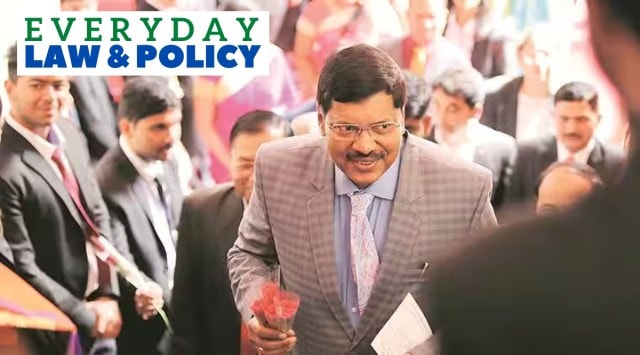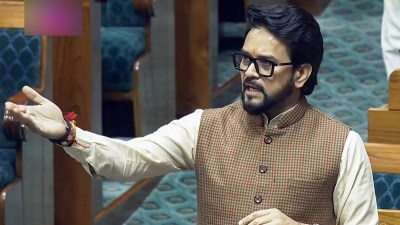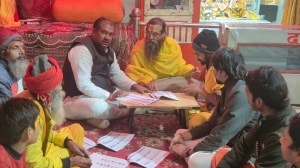In Rahul Gandhi case, Justice Gavai mentions Cong links: When do judges recuse themselves?
Justice Gavai told the parties of his father's long time association with the Congress and asked them to decide whether he should hear the matter or not. But Sr Advocate Mahesh Jethmalani, appearing for the complainant, said that he had no objection.
 Justice Gavai told the parties that his father had long standing links with the Congress. (Express Photo/File)
Justice Gavai told the parties that his father had long standing links with the Congress. (Express Photo/File) The Supreme Court on Friday (July 21) issued notice to the Gujarat government on a plea by Congress leader Rahul Gandhi challenging the Gujarat High Court order refusing to stay his conviction in a criminal defamation case.
Justice B R Gavai told the parties that his father had been associated with the Congress for a long time and asked them to take a call on whether he should hear the matter or not.
“There is some difficulty on my part. My father … was associated with Congress for more than 40 years … So in this background, you have to take a call whether I should take up the matter or not,” Justice Gavai said.
Senior Advocate Mahesh Jethmalani, appearing for the complainant Purnesh Modi, said, “We have no objection.”
The bench of Justices Gavai and P K Mishra fixed August 4 as the date for the next hearing.
When can judges recuse themselves?
In the above case, Justice Gavai outlined a potential conflict of interest and asked the parties to decide whether they want him to hear the matter or not.
When there is a conflict of interest, a judge can withdraw from hearing a case to prevent creating a perception that she carried a bias while deciding on the matter. The conflict of interest can be in many ways — from holding shares in a company that is a litigant to having a prior or personal association with a party involved in the case.
The practice stems from the cardinal principle of due process of law that nobody can be a judge in her own case. Any interest or conflict of interest would be a ground to withdraw from a case since a judge has a duty to act fair. Another instance for recusal is when an appeal is filed in the Supreme Court against a judgement of a High Court that may have been delivered by the SC judge when she was in the HC.
What is the process for recusal?
The decision to recuse generally comes from the judge herself as it rests on the conscience and discretion of the judge to disclose any potential conflict of interest. In the above case, Justice Gavai was upfront about his father’s association with the Congress party. However, since the complainant himself did not object to him taking up the matter, there was no recusal.
In some circumstances, lawyers or parties in the case bring a request for recusal up before the judge themselves. If a judge recuses, the case is listed before the Chief Justice for allotment to a fresh Bench.
What have prior judgements said on the issue?
There are no formal rules governing recusals, although several Supreme Court judgments have dealt with the issue.
In Ranjit Thakur v Union of India (1987), the Supreme Court held that the tests of the likelihood of bias is the reasonableness of the apprehension in the mind of the party.
“The proper approach for the Judge is not to look at his own mind and ask himself, however honestly, “Am I biased?” but to look at the mind of the party before him,” the court had held.
“A Judge shall not hear and decide a matter in a company in which he holds shares… unless he has disclosed his interest and no objection to his hearing and deciding the matter is raised,” states the 1999 charter ‘Restatement of Values in Judicial Life’, a code of ethics adopted by the Supreme Court.
- 01
- 02
- 03
- 04
- 05






































